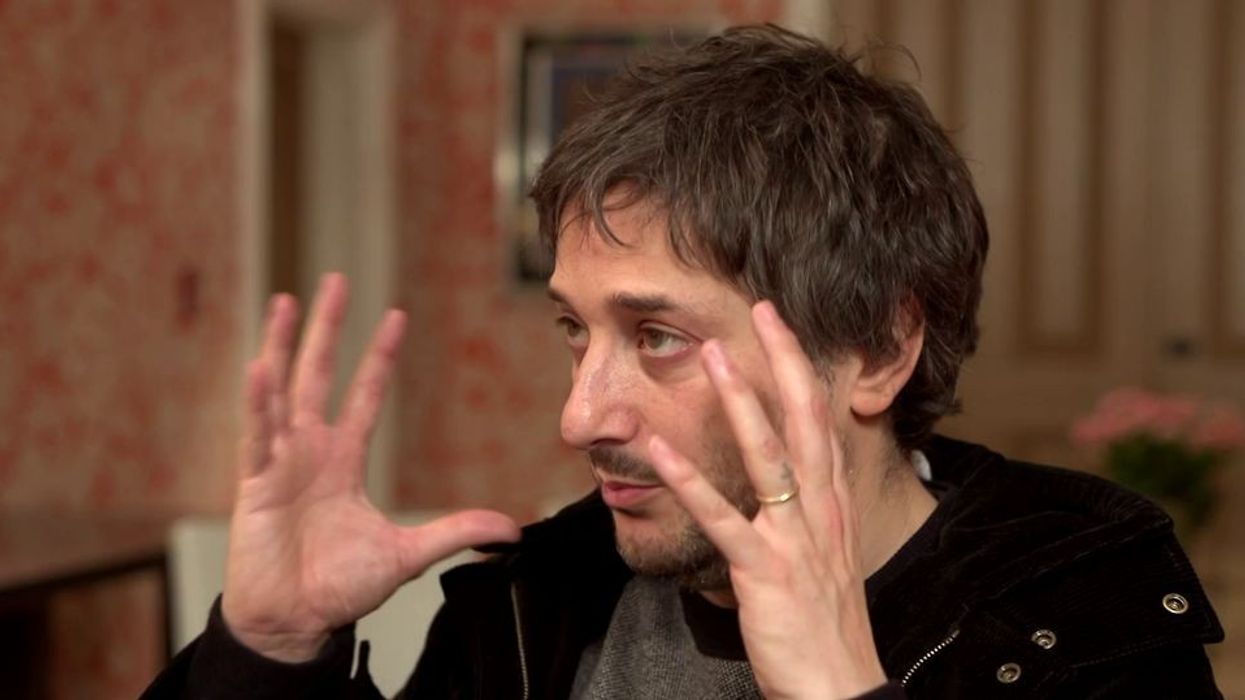Director Harmony Korine Talks About His Newest Film 'Spring Breakers' and Being a 'Soldier of Cinema'

Writer/Director Harmony Korine started out his filmmaking journey as a teenager, penning the screenplay for the 1995 breakout film Kids when he was just 19 years old. With his most recent release Spring Breakers, Korine continues to destroy expectations and come into his own as an innovative and radical filmmaker. In this short clip from Tumblr's new editorial feature project Storyboard, Korine talks about his process and what it means for him to be a self-described 'solider of cinema.' Check it out after the jump.
When I first heard of Spring Breakers I got excited, not only because I love his previous work (Mister Lonely is one of my top 5 favorite films), but because he seems to pick projects with an earnestness, and is able to achieve a special tone, somewhere bordering on irreverence, child-like curiosity, and modest irony. He seems to remain youthful, even reckless in his choices, which is something I admire. As we get older it becomes harder to hold on to that, and Korine drenches us in it, allows us a piece of that feeling; the 'stay hungry, stay foolish' sensibility of the enfant terrible.
The film is described by Korine as a sort of cultural mashup, a pop poem that he discovered after reading between the lines and finding a language, a collective narrative behind teenage MTV culture and coed-pornography websites. Korine endeavors to create a "peak experience," a very specific type of film --"pure energy" -- like a drug experience. In his candid, broken voice (due to a cold) at the Q&A at an Arclight Theater in Hollywood last week, he recounted:
You know me, I don't give a shit about the truth. I don't care about what's real. I want something unreal.
Korine explores, in what he calls the "liquid narrative," a hope to showcase a physical, dripping bombardment of image and sound, a place where the audience is never comfortable:
You create an atmosphere where anything can happen -- you put different chemicals in and document the explosion.
He told his DP, Benoît Debie, to light the film as if the light sources were Skittles -- he wanted to it look like candy, something you could reach out and taste. His infusion of improvised (or more specifically, written only in his head) dialogue, and an editing and sound design scheme that makes use of looping dialogue and imagery, makes for something approximating a cinematic remix that falls abrasively between humor & poetry.
In this great article from the Mubi Notebook, the Celluloid Liberation Front investigates:
In Harmony Korine’s Spring Breakers this duality coalesces into an magmatic whole, the (American) dream is broke and can no longer afford its preposterous innocence. Good and evil, so to speak, are part of the same generational experience, two hearts beating as one. From this perspective Korine comprehends all the grandiose and empty tragedy that adolescence is, that liminal, painful interval between wide-eyed stupor and jaded cynicism. He undresses the modern Disney icons to expose the rot they usually conceal. Spring Breakers is the last(ing) beach party of a country too terrified of adult life to grow up while inevitably having to come to terms with its dark side.
Korine's latest film has often been equated to a ploy for commercial success, or to break into the Hollywood market, but it's not that simple. As a "soldier of cinema" he explains his method:
I never really cared that much about seeking people's approval for things, it didn't matter to me so much if you loved something that I did or if you disliked it. Obviously I want to entertain and I want to bring joy and I want people to love what I'm doing, but in the end I have a purpose beyond that. All I ever wanted to be was bold, and to just try things. Even if it they don't work, if it's an experiment where you're trying things and they don't work and people don't like it, so what? Why does everything have to work all the time? There's merit and beauty in failure, and that's how I live my life.
In this clip on Letterman as a young man promoting his 1997 film Gummo, Korine talks about some of the same ethics over 16 years ago:
To all you kids out there, go and make some good movies. Go and invent a new language, go and blow the place up -- I'm looking forward to that.
What do you think about Korine's process and work?
Links:











